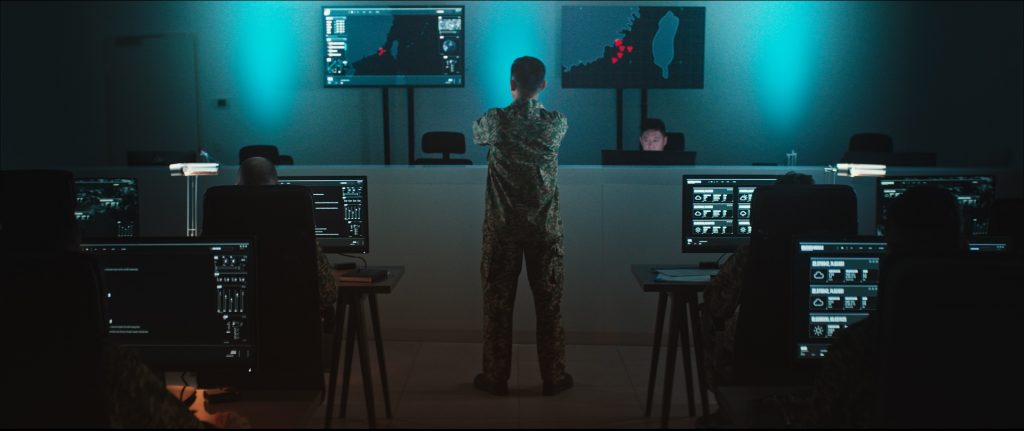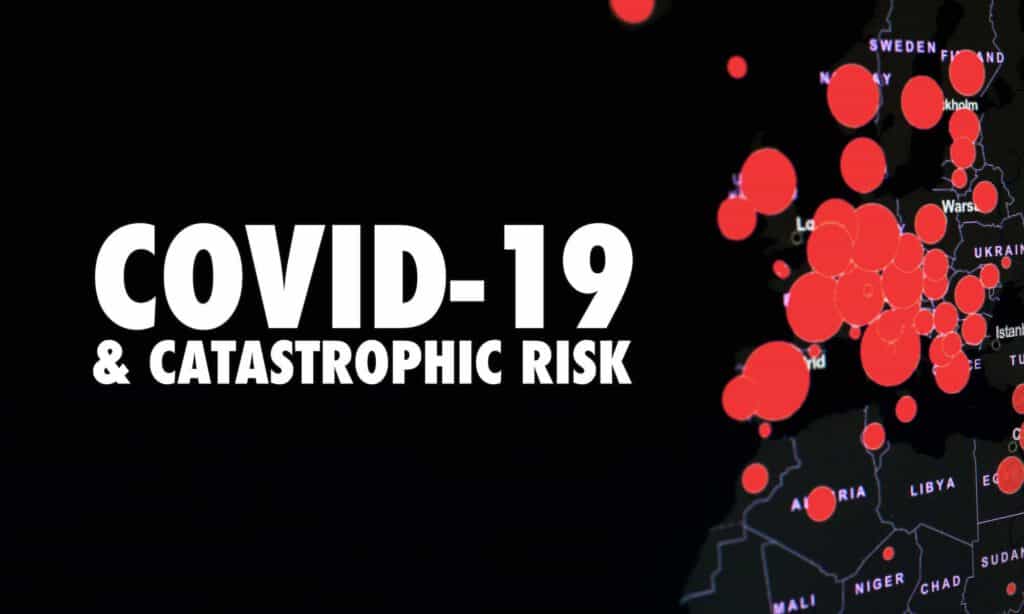Get your money out of nuclear weapons

Contents
Information for state and local governments, industry, academia, nonprofits, and individuals
Nine countries currently hold approximately 14,000 nuclear weapons — the U.S. and Russia have most of these — and thousands are ready to be launched on command. The risk that nuclear weapons will be used seems to increase daily, and over a trillion dollars are scheduled for more lethal, more easy-to-use, and more destabilizing nuclear weapons.
Most of that money will come from taxes, but it will be paid to companies that produce a variety of products. In fact, for many companies, the nuclear weapons and components they create are only a small fraction of total production. By stigmatizing these companies with actions like divestment and boycotts, it can become financially beneficial for them to pull out of nuclear weapons production.
The rest of this page provides all the resources you need to learn about nuclear divestment and take action.
Are you investing in nuclear weapons?
Before you can divest from nuclear weapons, it helps to know what you’re invested in. FLI has put together a divestment/investment tool to help you figure out if you’re invested in nuclear weapons and which mutual funds are nuclear-free. Just type in the funds you have now and go:
It also helps to know which companies are connected to nuclear weapons production. While we list the companies to avoid in the tool above, we got all of our information from Don’t Bank on the Bomb, which provides a much more comprehensive resource on who the nuclear weapons companies are:
Even with all of this knowledge, the process of divesting can seem daunting. We suggest learning from the fossil fuel divestment campaign. Check out the resource below for tips and suggestions to turn the idea of divestment into action:
For Industry, Academia, Nonprofit Organizations, and State and Local Governments
Companies, universities, churches, non-profits, local governments — any organization that has investments — all have tremendous potential to influence nuclear-weapons-producing companies. These institutions usually have money in investments, pension funds, etc., that they can divest from nuclear weapons. For example, in 2016, the city council of Cambridge, MA voted to divest their $1 billion pension fund from nuclear weapons producing companies. If other organizations and institutions follow suit, that could send a powerful message to companies that build the world’s deadliest weapons.
We’ve produced a guide for city’s to divest from nuclear weapons, which was handed out to the Mayors for Peace at the US Conference of Mayors in 2017, but many of the suggestions could apply to any organization or institution.
For tips on how local governments can create policies to divest from nuclear weapons, we recommend the Policy Checklist put together by Don’t Bank on the Bomb:
For examples of what a nuclear divestment policy might look at, please see the Cambridge City Council’s policy order:
For Individuals
Nuclear weapons might seem like a daunting problem for just one person to try to address, but there’s plenty that a single individual can do to help reduce the threat of nukes. Obviously, if you’re invested in nuclear weapons, you can use the tools above to divest and reinvest your money in socially responsible funds. But if for any reason you can’t divest or if you don’t have money to invest, there’s still plenty you can do to help get money out of nuclear weapons companies.
Whether you have investments or not, you likely work with some type of financial institution or bank. Don’t Bank on the Bomb offers a great resource that walks you through the steps of convincing your financial institution to divest from nuclear weapons companies. It can be surprising how quickly an institution will divest when even just a few people reach out!
But don’t stop with your own financial institutions! If you want to more actively join the divestment movement, Don’t Bank on the Bomb has also put together an extensive document with great steps you can take to help the divestment campaign grow:
Or if you prefer a shorter summary of actions you can take:
Divestment Works
The primary reason we encourage divestment is because we’ve seen the positive impact it’s had in the past, especially with regard to stigmatizing companies:
- From a report by The New Republic: “On tobacco, divestment helped to highlight the decades-old tactics the industry used to mislead consumers on the health impacts of smoking. The scrutiny paved way for new taxes, limits on smoking in public spaces, and other policies documented to change public behavior. The symbolic resonance of schools like Harvard, University of Michigan, and Stanford divesting was much more important than the amount of money pulled. … By financial measures, the campaign was a failure—since the ’90s, tobacco companies’ stocks have only grown, a sign that divestment didn’t hurt the industry’s long-term success. ”
- From the Stranded Assets program: ‘’’in almost every divestment campaign we reviewed from adult services to Darfur, from tobacco to South Africa, divestment campaigns were successful in lobbying for restrictive legislation affecting stigmatized firms’. For example, even though the share prices of tobacco companies have performed well throughout the divestment campaign, the industry has faced increasing restrictive legislation.”
- From the UN: “While it is unlikely that divestment by a single financial institution or government would create sufficient pressure on a company for it to end its involvement in nuclear weapons production, divestment by even a few institutions or states based on the same justification can impact a company’s strategic direction.”
- Examples: “Motorola divested from its defense business in order to stave off bad publicity in reputable news outlets. Similarly, Revlon’s decision to disinvest its South African operation was due to credible threats by customer groups to boycott Revlon products.”
- From the World Post: “US company Lockheed Martin, which describes itself as the world’s largest arms manufacturer, announced it ceased its involvement with the production of rockets, missiles or other delivery systems for cluster munitions and stated it will not accept such orders in the future. The arms manufacturer expressed the hope that its decision to cease the activities in the area of cluster munitions would enable it to be included in investors portfolios again, thereby suggesting that pressure by financial institutions had something to do with its decision.”
- From the UN: “Textron also recently announced it would stop the production of cluster munitions and commentators in financial media suggested that one reason for this decision would be to increase the ‘ownability’ of Textron shares for mainly European investors, which largely exclude cluster munitions producers from financing. This suggests that pressure by financial institutions was a contributing factor in Lockheed Martin and Textron’s decisions to end involvement with cluster munitions production.
Learn More About Nuclear Weapons
General Info
Federation of American Scientists: Nuclear Weapons
Nuclear Darkness: The Deadly Consequences of Nuclear War
Union of Concerned Scientists: Prevent Nuclear War
International Campaign to Abolish Nuclear Weapons (ICAN): The Facts
FLI: The Risk of Nuclear Weapons
Money and Nukes
MinutePhysics: Why You Should Care About Nukes
FLI: Trillion Dollar Nukes App
Nuclear close calls
FLI: Timeline of Nuclear Close Calls
Union of Concerned Scientists: Close Calls with Nuclear Weapons
Nuclear weapons ban
ICAN: Status of the Treaty on the Prohibition of Nuclear Weapons
Declassified US nuclear targets
FLI: 1100 Declassified US Nuclear Targets
More Resources
There are so many great organizations working to rid the world of nuclear threats. Learn more about the what they’re doing and consider joining their efforts.
Abolition 2000: An international global network of organisations and individuals working for a global treaty to prohibit and eliminate nuclear weapons.
Acronym Institute for Disarmament Diplomacy: Develops and supports multilateral disarmament and security agreements
The Center for Arms Control and Non-Proliferation: National non-partisan, non-profit dedicated to enhancing peace and security through expert policy analysis and thought-provoking research.
Cambridge Center for Existential Risk: Multidisciplinary research center within the University of Cambridge to study and mitigate existential risks
Campaign for Nuclear Disarmament: Advocacy group that seeks nuclear disarmament in Britain and the establishment of an international treaty banning all nuclear weapons
Center for Policy on Emerging Technologies (C-PET): A wide network of knowledgeable professionals who identify, clarify, and prioritize the big questions raised in a future perspective to cultivate a context within which solutions can be developed.
Don’t Bank on the Bomb: A global effort to discourage investments in companies that help build or upgrade nuclear weapons.
Defense Threat Reduction Agency: Official U.S. combat support agency for countering weapons of mass destruction, including nuclear, biological, radiological, chemical, and high yield explosive threats.
Federation of American Scientists: Think tank focused on providing analysis and policy recommendations on national and international security issues related to applied science and technology
Future of Humanity Institute: Oxford-based research organization analyzing big-picture questions for human civilization in an attempt to help shape the future of humanity
Global Catastrophic Risk Institute: Think tank leading research, education, and professional networking on the full breadth of major global catastrophic risks
Global Zero: International movement for the elimination of nuclear weapons. Powered by a visionary group of 300 international leaders and experts who support our bold, step-by-step plan to eliminate all nuclear weapons by 2030, the relentless creativity, energy and optimism of young people and half a million citizens worldwide, Global Zero is challenging the 20th century idea of basing national security on the threat of mass destruction.
Human Survival Project: Seeks to protect humanity from nuclear holocaust and its societal and environmental aftermath; a joint initiative of the University of Sydney Centre for Peace and Conflict Studies at the and People for Nuclear Disarmament
The International Campaign to Abolish Nuclear Weapons (ICAN): Coalition of non-governmental organizations in one hundred countries promoting adherence to and implementation of the United Nations nuclear weapon ban treaty. This landmark global agreement was adopted in New York on 7 July 2017, and ICAN was awarded the Nobel Peace Prize on December 10, 2017.
Institute for Science and International Security: Analyzes and communicates to the public on the science and policy behind nuclear nonproliferation and related international security issues, with emphasis on tracking nuclear weapons programs worldwide.
James Martin Center for Nonproliferation Studies: Middlebury College-based organization focused on reducing the spread of weapons of mass destruction and training future nonproliferation experts
Leverage Research: A team of researchers, inventors, educators, and activists focused on improving the world. Their research includes reducing catastrophic risk from totalitarianism and artificial general intelligence
Lifeboat Foundation: A non-profit organization encouraging scientific advancement while reducing existential risk and other possibly harmful outcomes from emerging technologies, including nanotechnology, robotics, AI, and genetic engineering
Mayors for Peace: Close cooperation among the cities that strives to raise international public awareness regarding the need to abolish nuclear weapons. It contributes to the realization of genuine and lasting world peace by working to eliminate starvation and poverty, assist refugees fleeing local conflict, support human rights, protect the environment, and solve the other problems that threaten peaceful coexistence within the human family.
National Security Archive: Library of declassified U.S. documents related to nuclear weapons, government secrecy, and other issues based at George Washington University; also supports research and investigative journalism
Nautilus Institute: Assembles professionals and conducts research to help solve threats of nuclear war, urban and energy insecurity, and climate change with a focus on the Asia-Pacific region
Nuclear Threat Initiative: Non-profit organization focused on strengthening global security by reducing the societal risk posed by nuclear, biological, and chemical weapons
Outrider Group: With their interactive features and in-depth articles, Outrider Group seeks to educate the public about the risks of nuclear war and climate-induced catastrophe and explain how people can become part of the solution.
Pax Christi USA (PCUSA): Grounded in the Gospel and Catholic social teaching, PCUSA is a membership organization that rejects war, preparation for war, every form of violence and domination, and personal and systemic racism. As PCUSA, a section of Pax Christi International, we are a Catholic peace and justice movement that seeks to model the Peace of Christ in our witness to the mandate of the nonviolence of the Cross.
Peace Action: The nation’s largest grassroots peace network with chapters and affiliates in states across the country.
People for Nuclear Disarmament: A citizens?? group based in Sydney promoting nuclear disarmament and related issues
Ploughshares Fund: Supports analysis and advocacy towards improving global security and peace via reductions in nuclear arsenals
Parliamentarians for Nuclear Non-proliferation and Disarmament (PNND): Non-partisan forum for parliamentarians nationally and internationally to share resources and information, develop cooperative strategies and engage in nuclear nonproliferation and disarmament issues, initiatives and arenas.
Physicians for Social Responsibility (PSR): Working for more than 50 years to create a healthy, just and peaceful world for both the present and future generations. PSR advocates on the issues you care about by addressing the dangers that threaten communities, such as nuclear weapons.
Program on Science and Global Security: Research group based at Princeton University studying nuclear weapons, biosecurity, and related issues
Pugwash Conferences on Science and World Affairs : Bring together scientists, academics, and public policy specialists to discuss the latest scientific insight to help reduce threats facing global society arising from science and technology, such as nuclear weapons and other WMDs
Reaching Critical Will: A Women??s International League for Peace and Freedom program that works to increase the influence of NGOs in UN disarmament processes including for nuclear and other weapons
Skoll Global Threats Fund: Promotes research, education, governance, and outreach towards confronting global catastrophic risks
Stimson Center: Washington D.C. based think tank focused on improving global security and reducing weapons of mass destruction
The Union of Concerned Scientists: Works on developing and implementing innovative, practical solutions to some of our planet’s most pressing problems—from combating global warming and developing sustainable ways to feed, power, and transport ourselves, to fighting misinformation, advancing racial equity, and reducing the threat of nuclear war.
US Department of Defense Nuclear Posture Review: A legislatively-mandated review that establishes U.S. nuclear policy, strategy, capabilities and force posture for the next five to ten years.
US National Nuclear Security Administration : Agency within the U.S. Department of Energy charged with managing and securing U.S. nuclear weapons, nuclear nuclear nonproliferation, and naval reactors
William J. Perry Project: Created by Former US Secretary of Defense William Perry, this project seeks to stimulate an informed and broadly inclusive public conversation about the role of nuclear weapons in today’s world and to work toward a world in which nuclear weapons are never used again.
Woodrow Wilson International Center for Scholars: Washington D.C. based research center focused on bridging scholars with policy experts in a host of fields, including global environmental change, nuclear proliferation, international security, and global sustainability and resilience
World Beyond War: Global nonviolent movement to end war and establish a just and sustainable peace.
World Institute for Nuclear Security: Helps secure nuclear and radioactive materials from theft, unauthorized access, and sabotage
About the Future of Life Institute
The Future of Life Institute (FLI) is a global non-profit with a team of 20+ full-time staff operating across the US and Europe. FLI has been working to steer the development of transformative technologies towards benefitting life and away from extreme large-scale risks since its founding in 2014. Find out more about our mission or explore our work.
Related content
Other posts about Collection

Introductory Resources on AI Risks

Global AI Policy

COVID-19 & Catastrophic Risk

